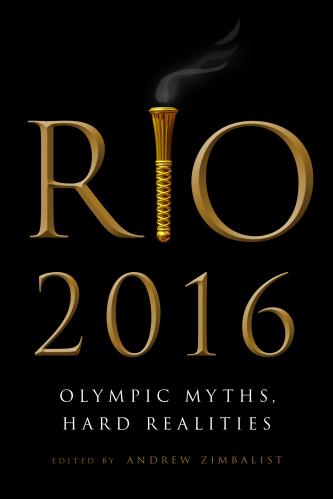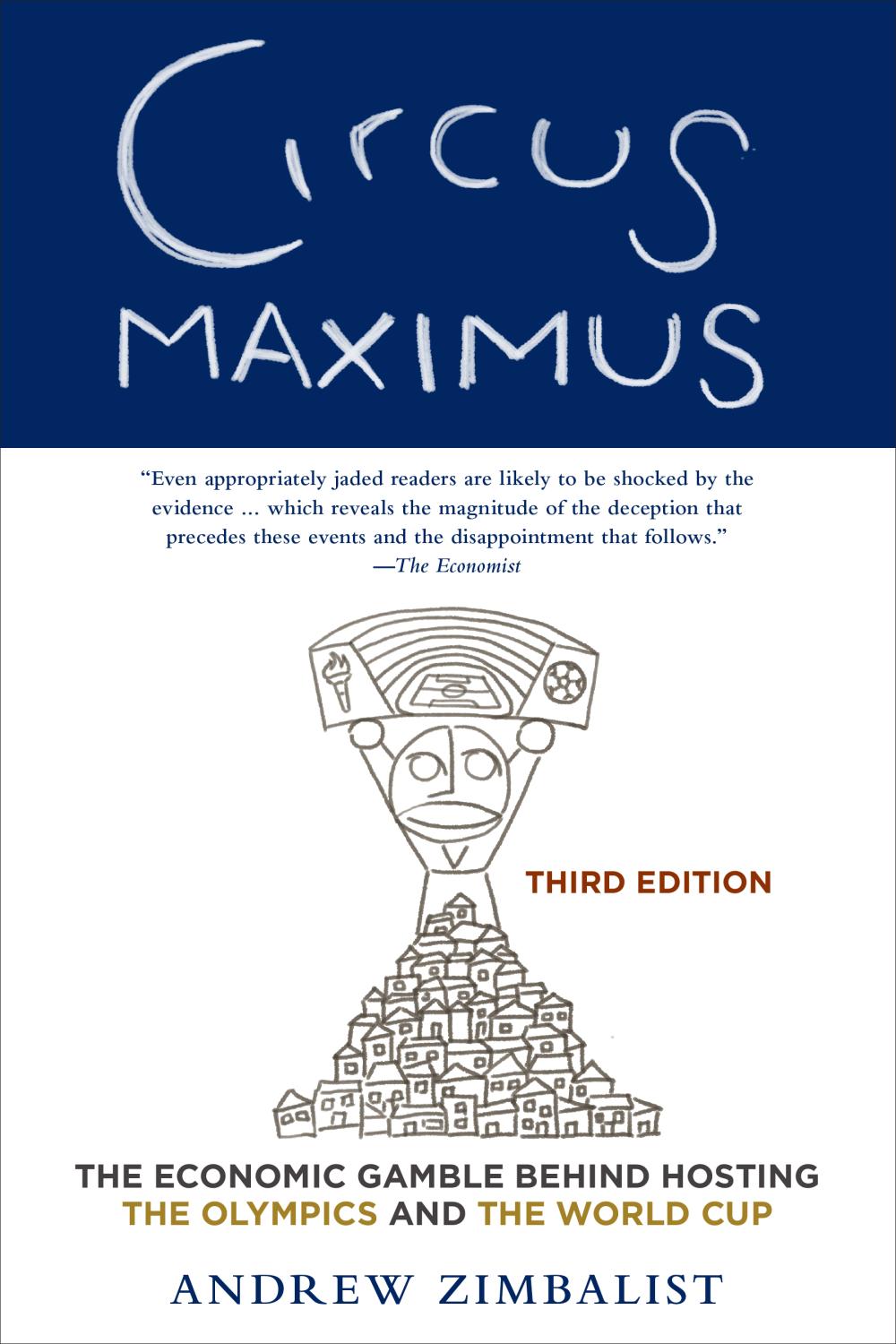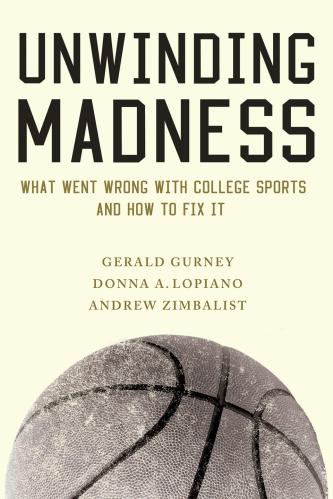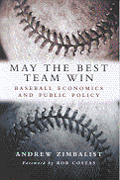


Book
Beyond the headlines of the world’s most beloved sporting events
Brazil hosted the 2016 men’s World Cup at a cost of $15 billion to $20 billion, building large, new stadiums in cities that have little use for them anymore. The projected cost of Tokyo’s 2020 Summer Olympic Games is estimated to be as high as $30 billion, much of it coming from the public trough. In the updated and expanded edition of his bestselling book, Circus Maximus: The Economic Gamble Behind Hosting the Olympics and the World Cup, Andrew Zimbalist tackles the claim that cities chosen to host these high-profile sporting events experience an economic windfall. In this new edition he looks at upcoming summer and winter Olympic games, discusses the recent Women’s World Cup, and the upcoming men’s tournament in Qatar.
Circus Maximus focuses on major cities, like London, Rio, and Barcelona, that have previously hosted these sporting events, to provide context for future host cities that will bear the weight of exploding expenses, corruption, and protests. Zimbalist offers a sobering and candid look at the Olympics and the World Cup from outside the echo chamber.
Related Books

Andrew Zimbalist
September 12, 2017

Gerald Gurney, Donna A. Lopiano, Andrew Zimbalist
February 7, 2017

Andrew Zimbalist
March 24, 2004
“Even appropriately jaded readers are likely to be shocked by the evidence . . . which reveals the magnitude of the deception that precedes these events and the disappointment that follows.”
—The Economist
“A remarkable study that exposes the extraordinary chicanery and dodgy dealing behind staging the Olympics and the World Cup”
—The Guardian
“Anyone in our broad metropolitan region who worries about the development binge that treats our unique area as a mega-mall for paving over, or who worries about the corrupting influence that commercialization has brought to all amateur sports should read this book.”
—The Washington Times
“A slim yet persuasive book that seeks to set out the ‘economic gamble behind hosting the Olympics and the World Cup.’ And it succeeds; indeed, it succeeds to such an extent that the reader can’t help but wonder why on earth any vaguely sensible city or country would want to play any part in such an expensive business.”
—SB Nation
“Circus Maximus ought to be required reading for the city and state officials anxious to bring the Olympics to Boston.”
—The Boston Globe
“Circus Maximus is required reading for anyone interested in a thorough, no-holds-barred account of how sports mega-events are awarded and what impact these events have on host communities.”
—The Independent Review: A Journal of Political Economy
Author
Andrew Zimbalist earned a B.A. from the University of Wisconsin at Madison and an M.A. and Ph.D. from Harvard University. He has been in the economics department at Smith College since 1974 and has been a visiting professor at Doshisha University, the University of Geneva, and Hamburg University. Zimbalist has consulted in Latin America for the United Nations Development Program, the U.S. Agency for International Development, and numerous companies. He has consulted in the sports industry for players' associations, cities, companies, teams, and leagues, and has published twenty-five books.
Is the party over for the Olympic?